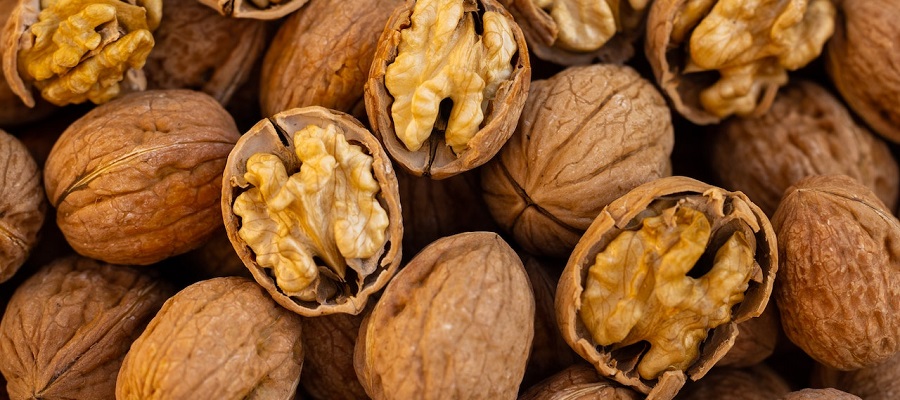Canned foods have long been a staple in many households for their convenience and long shelf life. However, there is a perception that canned foods are not as healthy as fresh or frozen options. In this article, we will explore the nutritional value of canned foods, the preservation methods used, and the environmental considerations of canned foods to determine whether they are truly a healthy choice.
The Nutritional Value of Canned Foods:
Canned fruits and vegetables can be just as nutritious as their fresh counterparts, as the canning process preserves many of the nutrients. In fact, some studies have found that the nutrient content of canned tomatoes and pumpkin can be higher than that of fresh produce, due to the fact that the canning process increases the bioavailability of certain nutrients. However, it is important to note that some canned fruits and vegetables may be high in added sugars, salt, or syrup, so it is important to read the label and choose options that are packed in water or their own juice rather than heavy syrups.
Canned meats and fish can also be a good source of protein and other nutrients. Canned tuna, for example, is a low-fat and high-protein option that is also rich in omega-3 fatty acids. Canned salmon is another good source of omega-3s, as well as calcium and vitamin D. However, it is important to choose canned meats and fish that are packed in water or their own juices, rather than oil or sauce, to avoid added calories and sodium.
Canned soups and beans can be a convenient and nutritious choice, as they are often high in protein, fiber, and other nutrients. However, it is important to choose versions that are lower in sodium and added sugars. Reading the label and choosing options that are made with whole, unprocessed ingredients can also help to ensure that you are getting the most nutritional value.
Preservation Methods in Canned Foods:
Heat processing is the most common method used to preserve canned foods. During this process, the food is heated to a high temperature to kill any bacteria or pathogens that may be present. This helps to ensure the safety and shelf life of the food.
Acidification is another method that is used to preserve certain types of canned foods, such as fruits and pickled vegetables. In this process, the food is packed in an acidic liquid, such as vinegar or lemon juice, which helps to preserve the food and prevent the growth of bacteria.
Preservatives are also sometimes used in canned foods to extend their shelf life. The most common preservatives used in canned foods are sodium benzoate and sodium metabisulfite. These preservatives can help to prevent the growth of bacteria and improve the safety and shelf life of the food.
Environmental Considerations:
Environmental considerations are an important factor to consider when evaluating the health and sustainability of canned foods. While canned foods have a longer shelf life than fresh options and can help to reduce food waste, the production and disposal of canned foods can have negative impacts on the environment.
One concern with canned foods is the use of aluminum and steel for canning. The production of these materials requires energy and resources, and the manufacturing process can contribute to air pollution and greenhouse gas emissions. In addition, the disposal of cans can be a problem, as they are not biodegradable and can take hundreds of years to break down in landfills. However, both aluminum and steel cans can be recycled, and recycling programs for these materials exist in many countries.
Another concern with canned foods is the use of Bisphenol A (BPA) in the linings of some cans. BPA is a chemical that can leach into food and has been linked to a range of negative health effects, including cancer, fertility problems, and developmental issues in children. While many manufacturers have moved away from using BPA in can linings, it is still present in some canned foods. Choosing canned foods that are labeled "BPA-free" can help to minimize exposure to this chemical.
Overall, while canned foods can be a convenient and nutritious choice, it is important to consider the environmental impacts of their production and disposal. Choosing canned foods that are made with environmentally-friendly materials and that are properly disposed of can help to minimize their impact on the environment.
Is it okay to eat canned food everyday?
It is generally safe to eat canned food everyday, as long as it is part of a balanced diet and consumed in moderation. Canned foods can be a convenient and nutritious choice, as they are often high in protein, fiber, and other essential nutrients.
However, it is important to choose canned foods that are lower in additives such as salt, sugar, and preservatives. Consuming large amounts of these additives can have negative effects on health, such as increasing the risk of heart disease and high blood pressure. Reading labels and choosing canned foods that are packed in water or their own juices, rather than oil or heavy syrup, can help to minimize the intake of added sugars and sodium.
It is also important to vary your diet and include a variety of fresh, frozen, and canned foods. This will help to ensure that you are getting a wide range of nutrients and minimize the potential for overexposure to any one type of food.
In summary, it is generally okay to eat canned food everyday as part of a balanced diet, but it is important to choose options that are lower in additives and to vary your diet to include a range of fresh, frozen, and canned foods.
What canned foods are healthiest?
When it comes to choosing healthy canned foods, it is important to look for options that are lower in additives such as salt, sugar, and preservatives. Canned fruits and vegetables that are packed in water or their own juices, rather than heavy syrups, are generally a healthy choice. Canned tomatoes, pumpkin, and other vegetables that are packed in water or tomato sauce can be a good source of vitamins, minerals, and other nutrients. Canned fruits, such as peaches and pineapples, that are packed in water or their own juices can also be a healthy choice.
Canned meats and fish that are packed in water or their own juices, rather than oil or sauce, can be a good source of protein and other nutrients. Canned tuna and salmon are both low in fat and high in protein and omega-3 fatty acids. Canned beans and legumes, such as chickpeas and lentils, can be a healthy choice as they are high in protein, fiber, and other nutrients.
When it comes to soups and stews, it is important to choose options that are lower in sodium and added sugars. Opting for homemade soups or stews, or choosing brands that use whole, unprocessed ingredients can help to ensure that you are getting the most nutritional value.
Overall, the healthiest canned foods are those that are lower in additives and made with whole, unprocessed ingredients. Choosing a variety of canned fruits, vegetables, meats, and legumes can help to ensure that you are getting a wide range of nutrients in your diet.
Are Canned Foods Nutritious For My Family?
Canned foods can be a convenient and nutritious choice for families, as they are often high in protein, fiber, and other essential nutrients. However, it is important to choose canned foods that are lower in additives such as salt, sugar, and preservatives.
Canned fruits and vegetables that are packed in water or their own juices, rather than heavy syrups, can be a nutritious choice for families. Canned tomatoes, pumpkin, and other vegetables that are packed in water or tomato sauce can be a good source of vitamins, minerals, and other nutrients. Canned fruits, such as peaches and pineapples, that are packed in water or their own juices can also be a healthy choice.
Canned meats and fish that are packed in water or their own juices, rather than oil or sauce, can be a good source of protein and other nutrients for families. Canned tuna and salmon are both low in fat and high in protein and omega-3 fatty acids. Canned beans and legumes, such as chickpeas and lentils, can be a nutritious choice for families as they are high in protein, fiber, and other nutrients.
When it comes to soups and stews, it is important to choose options that are lower in sodium and added sugars. Opting for homemade soups or stews, or choosing brands that use whole, unprocessed ingredients can help to ensure that your family is getting the most nutritional value.
Overall, canned foods can be a nutritious choice for families, as long as they are lower in additives and made with whole, unprocessed ingredients. Including a variety of canned fruits, vegetables, meats, and legumes in your family's diet can help to ensure that they are getting a wide range of nutrients.
Conclusion:
So, are canned foods healthy? The answer is that it depends on the specific type of canned food and how it is processed. Canned fruits and vegetables can be just as nutritious as their fresh counterparts, as long as they are packed in water or their own juices and do not have added sugars or sodium. Canned meats and fish can also be a good source of protein and other nutrients, but it is important to choose options that are packed in water or their own juices rather than oil or sauce. Canned soups and beans can be convenient and nutritious choices, as long as they are lower in sodium and added sugars and made with whole, unprocessed ingredients.
It is also important to consider the preservation methods used in canned foods. Heat processing and acidification are common methods used to preserve canned foods, and while preservatives may also be used to extend shelf life, it is important to choose options that are lower in additives.
When it comes to the environmental impact of canned foods, there are both positive and negative considerations. Canned foods have a longer shelf life than fresh options, which can help to reduce food waste, but the production and disposal of canned foods can have negative impacts on the environment.
Ultimately, the choice to include canned foods in your diet is a personal one. By reading labels and choosing options that are lower in additives and made with whole, unprocessed ingredients, you can make informed choices about the canned foods you choose to consume.


